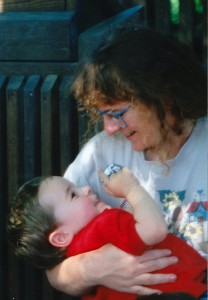“We walk a fine line in acknowledging that perfection in equipment and training are not and should not be required, and encouraging the pursuit of the ideal. We don’t want to support spraying wild bullets everywhere on the one hand, but we also don’t want to suggest that only the mostly highly trained elite are the only ones who should be privileged on the other.” – Annette Evans
This is deeply true. It is amazingly hard to explain to people that it’s okay to be in process, okay to not have guns and gear worth a bajillion dollars, okay to be learning and okay to not want to do this stuff every weekend … but also at the same time, to also help them understand that the concealed carry lifestyle is an investment, that it may take time and money and work at first, and that they will be both safer and better able to protect the people they love when they put more into it.
So on the one hand:
Bad gear is not better than good gear.
Bad training or no training is not better than good training.
Unsafe equipment is unsafe, no matter who promotes it.
Incompetence is not better than competence.
But on the other hand:
The important thing is to have a gun – not which brand you have.
An ugly but secure holster is better than no holster.
Some training is better than no training.
Competence is not an absolute – it’s relative.
And on the gripping hand:
After the initial investment, it does not have to be that hard. Honestly, it does not. It does not have to become a geeky, all-absorbing, eats all your time & money obsession (unless that’s what you want & that’s okay too).
Once you have invested in good gear and good training, carrying the gun on a daily basis is almost a walkaway. A fix-it and forget-it type thing, like getting a good lock for your front door and using it every time you enter or leave the house. There’s a little ongoing work — you have to use the lock and keep track of your keys and maybe sometimes put some lube on the lock or something, just as you have to tote the gun and sometimes practice with it — but mostly it’s a walkway.
With good gear, you can carry the gun every day and not usually think any more about that than you do about your wallet or your cell phone or anything else you usually have with you.
With a good baseline of skills, you can practice on a comfortable schedule that fits into your life, and — as long as we are talking about weeks or months rather than years — the skills will mostly still be there for you to use the gun safely and with reasonable efficiency when you need to. Depending how much time passes between practice sessions, you may lose your edge and losing that edge might mean you want to practice more so you don’t lose that edge. But also, once you have a good baseline skill set, you will not forget how to run the gun or handle it safely as long as you refresh your skills occasionally.
Note that this only happens once you have done the work to reach a decent level of skill to begin with, equivalent to being able to drive a car without thinking about which pedal to use to make it stop. You can’t really improve your skills on a casual, get-to-the-range-when-I-feel-like it basis. But once the skills are in place, you can maintain them with surprisingly little ongoing effort.
(And that’s yet another reason I am such a strong advocate of truly excellent training from the very beginning — because it is often far less work in the long run.)
It’s okay to be in process.
It’s okay to not make this way of living a life-consuming chore.
It’s okay to love your life and love your family and want to protect them, while still living your life and spending time with your family at places other than the gun range.
It’s okay. <3





